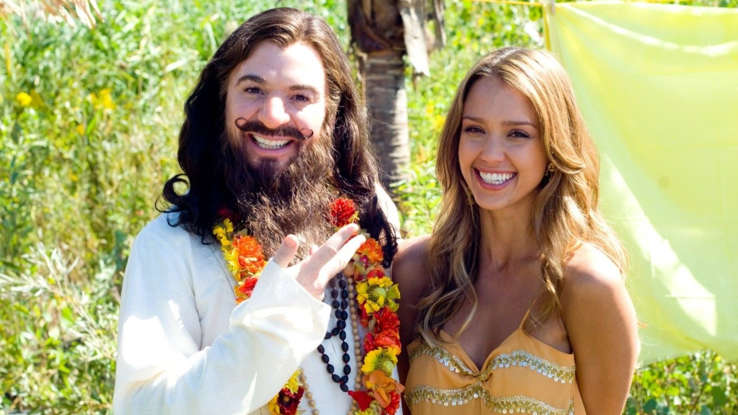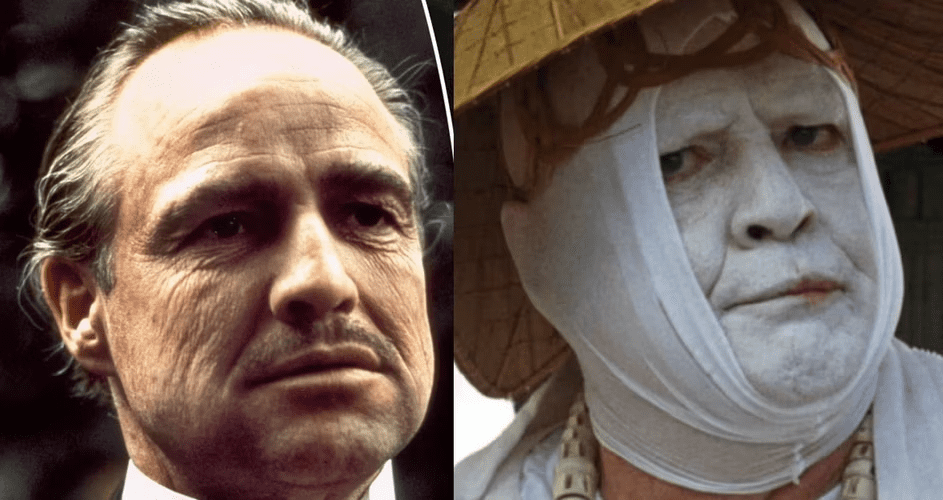One supposedly represents the best of the best and the other the worst of the worst. In theory the Oscars and the Razzies are polar opposites, yet they have something in common. Each loves a pile-on. Every year as awards season comes around again, a fog seems to descend on the members of the voting academies, groupthink sets in and some perfectly OK but largely unremarkable movies start mysteriously migrating – up to become Academy Award contenders, or down to where the Razzies await. If a bona fide celebrity is involved, the movement can be quite dramatic.
Was Driving Miss Daisy really the best picture of 1990? Against, say, Do the Right Thing? Did Around the World in 80 Days deserve the same award in 1957, when The Searchers, La Strada or Seven Samurai were out there? Imagine that The King’s Speech beat out The Social Network!
The Golden Raspberry Awards, to give the Razzies their official name, only got going in 1980 but since then its mission to name and shame the schlockiest has gone hand in hand with a desire to expose so-so films that have been showered with awards because they have good PR behind them. A noble idea but even so, just like the Academy, the Golden Raspberrys have mis-stepped repeatedly and given a terrible drubbing to the wrong film. Showgirls won a worst director award for Paul Verhoeven and a worst actress gong for Elizabeth Berkley (in passing it’s worth noting how often Razzies get handed to movies with sexual content). Scarface – worst director for Brian De Palma. The Blair Witch Project – worst picture. When the Razzies get it wrong, they really get it wrong.
The Oscars are a funny old business and behind the scenes there’s a lot of arm-twisting and lovebombing of Academy members for their votes. They then further muddy the waters by adding a layer of virtue-signalling. But, the fickle finger of fate also plays a part when it comes to the handing out of awards – for both good and bad movies – and level-headed directors/performers/technicians know it.
They tend to be the ones who will turn up on the night at the Razzies, to accept an award with good grace and a “you win some, you lose some” shrug, though it’s also got to be part of the equation that turning up in person is a subtle way of deflecting blame. Sure, this movie is crap, but I’m a good sport so it can’t be my fault.
With all that in mind, here’s a few favourite attendees from over the years (in no particular order).
Paul Verhoeven, chutzpah to his fingertips, was the first “name” to turn up in person at the Razzies and accept an award, in 1996, for what he knew damn well was a better-than-its-rep film, Showgirls. Smiling broadly, he told the audience he’d been hounded out of his native Netherlands for making films that were “decadent, perverted and sleazy… Then I moved to the United States.” The audience gave him two standing ovations.
Remember 2001’s Freddy Got Fingered? Comedian Tom Green gamely turned up for the five Razzies his film (he directed, wrote and starred) won out of eight nominations, including worst picture, worst actor and worst screen couple (for “Tom Green and any animal he abuses in Freddy Got Fingered”). He arrived at the awards with his own red carpet. “When we set out to make this film we wanted to win a Razzie,” he said. “so this is a dream come true for me.”
Halle Berry’s appearance in 2005 to pick up the worst actress award for Catwoman falls firmly into the damage limitation/reputational salvage category, her elegant presence essentially dog-whistling to the audience that it wasn’t her fault the movie was so bad. As a subtle signal, Halle accepted the award and then posed for pictures with her Razzie in one hand and her Oscar (for Monster’s Ball) in the other.
Sandra Bullock, at the Razzies in 2010 to accept worst actress and worst screen couple (with Bradley Cooper) awards for All About Steve, tried a different tack, subtly undermining the awards by suggesting that the organisers had told her that if she showed up, they’d give her the award. “I didn’t realize that, in Hollywood, all you had to do was say you’d show up, and then you’d get the award. If I’d known that, I would have said I was appearing at the Oscars a long time ago.” The following night she won an Oscar (for The Blind Side), and turned up for that too.
J David Shapiro, screenwriter of Battlefield Earth, turned up at the 2010 Razzies, to accept the worst picture of the decade award. The film had also won in the “worst drama of the Razzies’ first 25 years” category in 2005, as well as the eight Razzies it had picked up on the film’s calamitous first release in 2000. Shapiro claims very little of his original draft ended up on the screen, and even wrote a humorous piece for the New York Post explaining how he’d got involved in the adaptation of Scientologist L Ron Hubbard’s book. The piece’s title? “I penned the suckiest movie ever – sorry!”
© Steve Morrissey 2023

